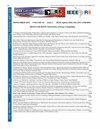开发智能手机应用程序和 Chrome 浏览器扩展程序,以检测英语和葡萄牙语假新闻
IF 1.3
4区 工程技术
Q3 COMPUTER SCIENCE, INFORMATION SYSTEMS
引用次数: 0
摘要
在数字社会中,信息所描述的真相对于促进教育、安全和发展至关重要。然而,假新闻在这方面引起了极大的关注。尽管人们一直在努力打击假新闻,但随着假新闻威胁的不断翻新,它仍然是一个不断变化的多方面挑战。因此,在我们的方法中,开发了多个机器学习和深度学习模型,以获得能够检测网上出现的虚假内容的模型。然后,这些模型可以与用户设备对接,即以浏览器扩展和智能手机应用程序的形式。分类模型在云服务器上运行,可通过网络服务访问。这些模型可以检测英语和欧洲葡萄牙语的虚假新闻,鉴于这一特定领域和语言的项目数量较少,因此更侧重于后者。除了通过网络搜刮开发出首个用于检测欧洲葡萄牙语假新闻的公开数据集之外,这些模型还取得了比以往工作更好的性能,同时使用了来自更广泛来源的大量数据进行训练。本文章由计算机程序翻译,如有差异,请以英文原文为准。
Development of a Smartphone Application and Chrome Extension to Detect Fake News in English and European Portuguese
In a digital society, the truth portrayed by information is crucial in promoting education, security, and evolution. However, fake news raises a significant concern in that regard. Although there has been a continuous effort in the fight against fake news, it is still a multifaceted challenge in constant change as the menace renovates itself. Thus, in our approach, several machine learning and deep learning models were developed to obtain models that can detect fake content that appears online. The models can then be interfaced with users devices, namely in the form of browser extensions and smartphone applications. The classification models run on a cloud server and are accessible via web services. These models can detect fake news in English and European Portuguese, with a stronger focus on the latter, given the reduced number of projects in this specific field and language. Besides developing the first public dataset for fake news detection in European Portuguese through web scraping, the models achieved better performance than previous work while being trained with a significantly higher amount of data from a wider variety of sources.
求助全文
通过发布文献求助,成功后即可免费获取论文全文。
去求助
来源期刊

IEEE Latin America Transactions
COMPUTER SCIENCE, INFORMATION SYSTEMS-ENGINEERING, ELECTRICAL & ELECTRONIC
CiteScore
3.50
自引率
7.70%
发文量
192
审稿时长
3-8 weeks
期刊介绍:
IEEE Latin America Transactions (IEEE LATAM) is an interdisciplinary journal focused on the dissemination of original and quality research papers / review articles in Spanish and Portuguese of emerging topics in three main areas: Computing, Electric Energy and Electronics. Some of the sub-areas of the journal are, but not limited to: Automatic control, communications, instrumentation, artificial intelligence, power and industrial electronics, fault diagnosis and detection, transportation electrification, internet of things, electrical machines, circuits and systems, biomedicine and biomedical / haptic applications, secure communications, robotics, sensors and actuators, computer networks, smart grids, among others.
 求助内容:
求助内容: 应助结果提醒方式:
应助结果提醒方式:


